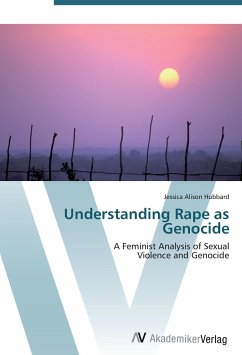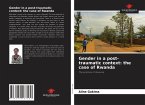Revision with unchanged content. In times of war, women are subjected to sexual abuse that is largely ignored by military organizations, media outlets, and international courts. Existing literature has illustrated how wartime rape was accepted or dismissed in the past, and how today, while this practice continues, international courts are beginning to identify the harm being done to women. This book argues that wartime rape serves as a means of genocide, a way to eliminate a group of individuals and their culture. The purpose of this re search is to examine genocidal rape from the perspectives of women who were raped in Rwanda during the genocide. The focus is on gaining insight to wartime rape as a form of genocide and the aftermath of rape on the women and the culture within which it occurred. Qualitative, feminist analysis was used to answer the following research questions: How do women raped in the Rwandan genocide describe and explain their experiences with rape and its aftermath? How did the intersection of gender and ethnicity contribute to violence against women during the genocide? What are the implications of rape for the women who experienced it and for their families, communities, and their cultural group?
Hinweis: Dieser Artikel kann nur an eine deutsche Lieferadresse ausgeliefert werden.
Hinweis: Dieser Artikel kann nur an eine deutsche Lieferadresse ausgeliefert werden.








